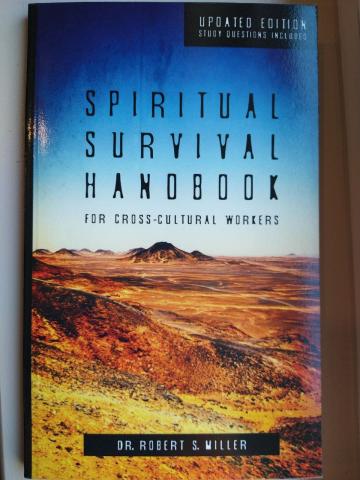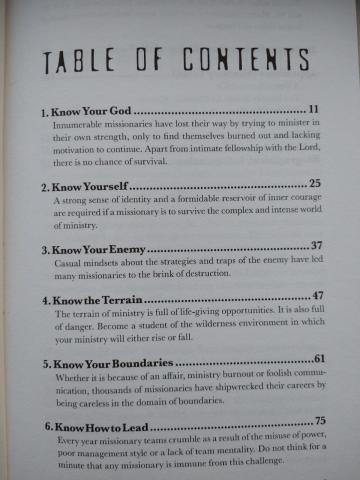Spiritual Survival Handbook for Cross-Cultural Workers, by Dr. Robert S. Miller was published in 2011 by the BottomLine Media. This book is a concise guide to the essentials of spiritual survival for those working in cross-cultural situations.
Most of the content of this book is divided into seven short chapters, each focusing on a different word that Miller notes to be an area of importance for ministry. Each chapter title begins with the word know followed by one of these seven important words. This title structure helps to rivet in one’s mind that the seven principles must be understood and guarded for spiritual well-being amidst the stressful environment of cross-cultural ministry.
In the first chapter, Miller stresses the importance of a strong relationship with God. “Without the living water, there is no living, vital ministry” (p.12). This relationship must be cultivated through daily discipline. Some days the fellowship will be sweet; other days it will seem like a constant battle of the will. But even in times of difficulty, the relationship must be pursued. This dogged pursuit of God is the core of spiritual survival.
Chapter 3 focuses on common ways used by Satan to limit or destroy the effectiveness of one’s ministry. 1). Weariness: “The missionary life is not a sprint; it is a marathon” (p.39). We get tired from the daily grind. Satan then attempts to make our work look completely overwhelming. At times like this, we need to step back, refocus, and then step into the battle again. 2). Distancing: If Satan can get us to inch away from God, we will find ourselves separated from the very source of our strength. However, walking by the Spirit ensures spiritual victory. The enemy has no hope with God right beside us.
The missionary will encounter many different situations that have the potential to destroy his work. Some of these situations are addressed in chapter 4, entitled “Know Your Terrain.” With each situation, Miller gives the survival tactic. Whether its carnal temptations, stress-filled moments, or relationship struggles, we must be alert for things in our environment that will hinder us. Perhaps more importantly, we need to look for ways to change our terrain into a positive environment.
The above-mentioned points are just a few of the gems Miller offers in this important work. This book is highly recommended for bringing into focus the essentials of spiritual survival. Success is possible, but will not happen as a second thought. It must be central to everything we do.
—EK


